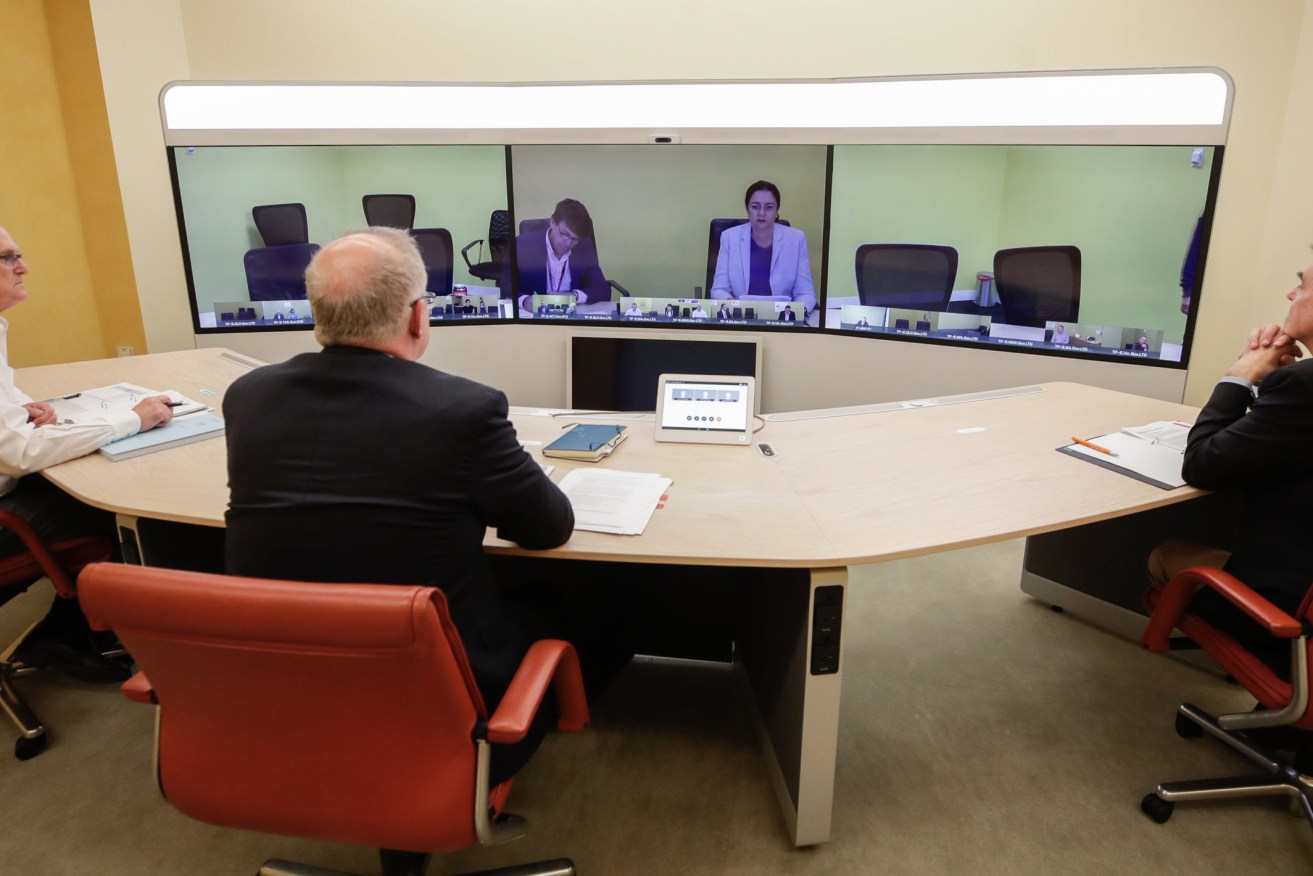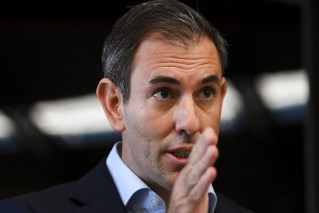Will this new, nimble age of government become a template for the future?
Governments are now making decisions based on urgency and need rather than bureaucratic process. They’re also deciding what’s essential and what isn’t, writes Robert MacDonald


Prime Minister Scott Morrison chairs a meeting of national cabinet. (Photo: AAP Image/Alex Ellinghausen)
COVID-19 has taught us about essential and non-essential business activity – hairdressers, yes but gyms, no; cafes and restaurants yes, but only for takeaway; sex workers, yes but only via online or video services.
But what about essential and non-essential government activity?
The pandemic has forced federal and state governments to dramatically refocus their priorities, and along the way, decide what’s essential and what isn’t.
Regulatory and oversight agencies have relaxed their formal reporting requirements, recognising there are more urgent matters at hand than making sure all the boxes are ticked and all the right forms filled in.
Rules and regulations that so recently seemed so essential to the orderly running of the economy have been jettisoned.
Barely two months ago, the Australian Government’s Tertiary Education Quality and Standards Agency thought it was essential that the country’s higher-education providers delivered no more than a third of course content to international students online.
That’s gone by the board. Whatever the world post-COVID-19, successful online delivery of courses will be essential to the survival of Australia’s international education and training sector.
The Australian Securities and Investment Commission has delayed activities “not immediately necessary in light of these significantly changed circumstances, including consultations, regulatory reports and reviews”.
And once-burning policy issues are now on the back burner.
ASIC has postponed its review of executive remuneration and its effect on corporate culture, which was such a high priority in the wake of the Haynes financial services royal commission.
It has also slowed down its project looking at the climate risk disclosure practices of Australian-listed companies – again a priority before a global pandemic bumped climate change off front pages.
Elsewhere, the Australian Prudential Regulation Authority has announced it has suspended “most of its planned policy and supervision initiatives in response to the impact of COVID-19”.
And government agencies of all sorts have clearly abandoned pre-pandemic processes for decision-making. Decisions that would once have taken months of meetings and discussion papers and policy deliberations are now being taken in days.
To take just one example: On March 22, the Federal Government announced a scheme to guarantee 50 per cent of new loans to small and medium enterprises issued by eligible lenders. The Government says the program will support up to $40 billion of lending – in short, a significant initiative involving billions of dollars.
It then took Treasury only two weeks to get the scheme up and running.
And APRA needed just three weeks to develop the new data reporting standards necessary to support the new lending program, more or less apologising for the haste.
“Due to the need to provide this data to the Government promptly, APRA has had to eschew its usual consultation process for new reporting standards in this instance,” it explained.
Such rapid decision-making does have its risks as the Queensland Government discovered last week when it launched its proposed COVID-19 tenancy protection measures, which were immediately attacked by landlords and property managers as being too one-sided.
The Government quickly responded that it would “continue to listen and work with stakeholders” while it finalised the new measures, which are due to be published within a few days.
Slightly messy perhaps but still, another significant new policy being developed in record time.
Without doubt, many of today’s rushed-through emergency measures will have unintended consequences tomorrow, or unpredicted complications in their delivery – just look at the teething problems in initial policing of social distance rules.
But that’s part of the price for government decision making driven by urgency and need rather than bureaucratic process.
Due process and diligent consideration of the implications and consequences of the actions of government decision-making are, of course, important but the risk is always that the process itself becomes the priority rather than the outcome.
Perhaps, when the time comes to assess, government behaviour during the current crisis, as it inevitably will, we will discover how to capture this new-found nimbleness of public sector decision-makers.
And perhaps, we will also develop new definitions of what is essential and non-essential government business.












